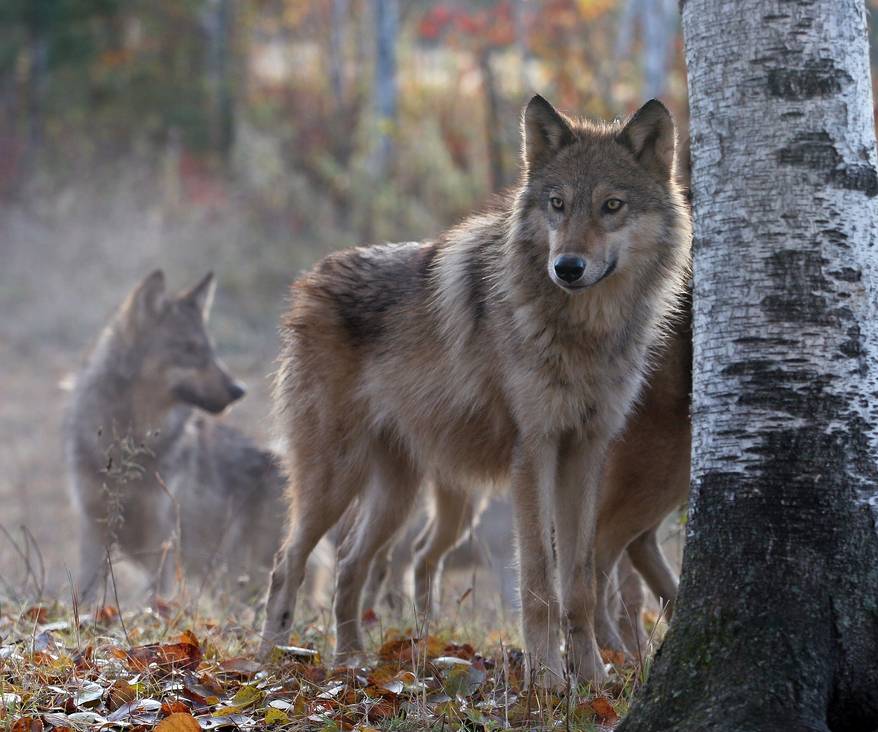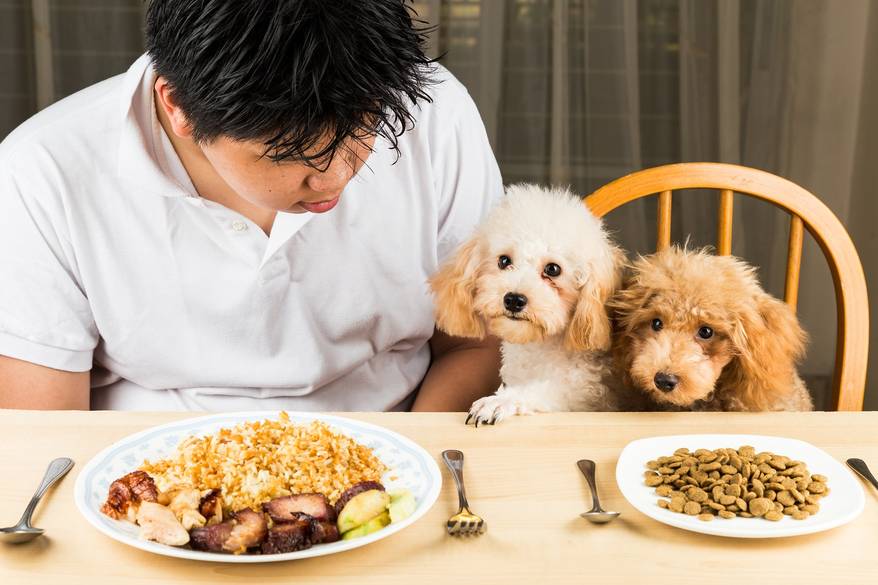
-
Find the right food for your petTake this quiz to see which food may be the best for your furry friend.Find the right food for your petTake this quiz to see which food may be the best for your furry friend.Featured products
 Adult Chicken & Barley Recipe Dog Food
Adult Chicken & Barley Recipe Dog FoodSupports lean muscle and beautiful coat for adult dogs
Shop Now Hill's Science Diet Adult Chicken & Beef Entrée Dog Food
Hill's Science Diet Adult Chicken & Beef Entrée Dog FoodChicken & Beef Entrée in a delicious loaf with complete & balanced nutrition to help keep adult dogs active and healthy
Shop Now Adult Large Breed Chicken & Barley Recipe Dog Food
Adult Large Breed Chicken & Barley Recipe Dog FoodSupports healthy joints, lean muscle, and beautiful coat for large breed dogs
Shop NowFeatured products Adult Perfect Weight Vegetable & Turkey Medley Cat Food
Adult Perfect Weight Vegetable & Turkey Medley Cat FoodOver 70% of cats lost weight within 10 weeks when fed this nutrition
Shop Now Adult Urinary Hairball Control
Adult Urinary Hairball ControlSupports the health of the whole urinary system with optimal levels of magnesium
Shop Now Kitten Sensitive Stomach & Skin Salmon & Vegetable Stew
Kitten Sensitive Stomach & Skin Salmon & Vegetable StewSupports kitten growth, digestive health, nourishes skin and promotes a lustrous fur
Shop Now -
Dog
- Dog Tips & Articles
-
Health Category
- Weight
- Food & Environmental Sensitivities
- Urinary
- Digestive
- Joint
- Kidney
-
Life Stage
- Puppy Nutrition
- Adult Nutrition
- Senior Nutrition
Cat- Cat Tips & Articles
-
Health Category
- Weight
- Skin & Food Sensitivities
- Urinary
- Digestive
- Kidney
-
Life Stage
- Kitten Nutrition
- Adult Nutrition
Featured articles The Science Behind Our Love for Pets
The Science Behind Our Love for PetsLearn the scientific reasons why we have such strong connections with our pets, and what science says about the love between humans and our furry friends.
Read More How to Properly Mix Wet & Dry Pet Foods
How to Properly Mix Wet & Dry Pet FoodsAn Orange cat eating from a bowl filled with mixed food
Read More What Is Littermate Syndrome? Pet Adoption Guide
What Is Littermate Syndrome? Pet Adoption GuideLearn more about littermate syndrome in dogs and cats and how to successfully navigate adoption and early socialization processes.
Read More -


"Should I feed my dog a raw diet?" If you've ever heard another pet parent rave about how his or her dog appears to be thriving on a raw meat diet, you might be asking yourself this question. Proponents of raw diets for dogs point out that dogs are biologically similar to carnivorous wolves, and claim that the benefits of this type of diet include healthier skin, coat and teeth, more energy and smaller stools, according to PetMD. However, there is very little scientific evidence to support these claims. In fact, most of the scientific research on raw meat diets for dogs shows that they could do more harm than good.
Dogs Are Not Wolves

It's a fairly common belief that because dogs are descended from wolves, they should eat a diet similar to that of their wild ancestors. Because wolves are carnivores —meaning that they solely eat meat — it's often assumed that dogs should also be fed a carnivorous diet.
The problem with this assumption is that dogs are genetically different from wolves, says Science Magazine. Dogs split off from wolves and became domesticated thousands of years ago. Since then, they have evolved alongside humans to be able to eat much of what humans eat. In a study published in Nature, genetic researchers found clear evidence that dogs have genetically adapted to eat a diet consisting of meats and starches. Feeding your dog nothing but raw meat as though he's a tame wolf has the potential to deprive him of vitamins and nutrients that are vital to his health. Such a diet could pose serious health risks not only to dogs, but also to people.
Dangers of Raw Diets for Dogs
A two-year study conducted by the U.S. Food and Drug Administration from 2010 to 2012 found that raw pet food is more likely than other types of pet food to carry bacteria, including Salmonella and Listeria monocytogenes that cause food borne illnesses. This study prompted the FDA to issue a warning about the public health risks of raw pet food diets. Not only that, but veterinary organizations, like the American Animal Hospital Association, officially recommend against feeding raw meat-based diets to dogs, as does the American Veterinary Medical Association (AVMA).
While it's possible that your dog could get food poisoning from eating raw meat infected by Salmonella, E. Coli, or other disease-causing bacteria, it's more likely that your dog could himself become a carrier, says The Whole Dog Journal. A dog's stomach acid may neutralize infectious bacteria before they make him sick, but there's a chance he could still pass the bacteria to other dogs or people he comes into contact with. What's even more troubling is that a 2011 study in The Canadian Veterinary Journal found that much of the Salmonella found in dogs fed raw meat diets was a type that's resistant to antibiotic drugs.
Another worry of raw diets is obstruction from any bones or other solid artifacts that are not properly removed from the food. These can cause choking or intestinal damage to your pup. Finally, raw diets are not properly balanced to provide your dog with the adequate levels of calcium, phosphorus and vitamin D that are essential to a growing dog's development. For instance, without the right amount of calcium, your puppy could develop skeletal problems.


Tasty Tips
Balanced Nutrition

Of course, another important criticism of raw diets for dogs is the lack of balanced nutrition. For healthy dogs that aren't dealing with health problems that require a specialized diet, the American Society for the Protection of Cruelty to Animals recommends feeding a diet with the right balance of protein, water, fats, carbohydrates, vitamins and minerals. High-quality dog foods are formulated specifically to meet these needs in the correct amounts. What's more, a dog's nutritional needs change as he goes through different life stages. Dog foods are typically specifically suited to each stage of your pet's development.
Proponents of raw food diets claim that their dogs' skin and coats showed improvements after switching to raw meat diets; however, it's possible that any previous skin problems occurred from low-quality pet food, an environmental factor no longer around, or negative reactions to an ingredient in one brand of dog food. Instead, switching their dogs to a high-quality dog food may lead to similar improvements while ensuring that their dogs receive the proper balance of nutrients.
Raw Diet Safety
In spite of the risks and the lack of scientific evidence supporting the health benefits of a raw food diet, many people still insist that a raw diet is the healthiest way to feed their dogs. If you're not convinced that raw diets for dogs should be avoided, here are some safety guidelines recommended by the FDA to help reduce the risk of contamination to you and your dog.
- Avoid touching your face or mouth while handling raw pet food.
- Thoroughly wash your hands with soap and water after handling raw meat.
- Clean and disinfect all surfaces, utensils and other objects that came into contact with the raw pet food. The FDA recommends washing the surface with soap and water and then following with a solution of one tablespoon of bleach to one quart of water.
- Freeze raw meat or poultry until you're ready to use them (freezing does not guarantee killing of all the bacteria. Salmonella and E. Coli can often be resistant to cold temperatures). Thaw raw meat in your refrigerator or microwave, not in the sink or on the countertop.
- Carefully handle raw meat or poultry to avoid spreading raw juices to other areas.
- If your pet doesn't finish his food, immediately refrigerate or carefully dispose of the leftovers.
- Avoid kissing your dog on or near his mouth, and don't allow him to lick your face.
- Be sure to wash your face and hands after handling or being licked by your dog.
It's also a good idea to wear disposable gloves while handling your dog's food and to feed him on disposable plates. Because young children and the elderly are especially susceptible to foodborne illnesses, they should never come into contact with this type of dog food.
Your pet's stool is also a potential source of contamination. Be sure to collect and safely dispose of your dog's stool, taking care not to come into contact with it. Thoroughly wash your hands with soap and water when you're done.
With this evidence in hand, you can confidently answer "No" the next time you hear the question "Should I feed my dog a raw diet?" While the enthusiasm of raw diet proponents can be alluring, the safety of your dog and the people in your household should be your highest priority. If you're still not sure, talk to your veterinarian about the best type of food to feed your dog.


Jean Marie Bauhaus is a pet parent, pet blogger, and novelist from Tulsa, Oklahoma, where she usually writes under the supervision of a lapful of fur babies.
Related products

Chicken & Beef Entrée in a delicious loaf with complete & balanced nutrition to help keep adult dogs active and healthy

Supports healthy joints, lean muscle, and beautiful coat for large breed dogs

Chicken & Barley Entrée in a delicious loaf with great taste and precisely balanced nutrition to support 5 essential building blocks for lifelong health

Supports lean muscle and beautiful coat for adult dogs
Related articles

Learn how to help keep your dog's immune system in tip-top shape, including nutritional immune system support for dogs and other strategies.

Wondering where can I buy a dog? Consider adoption and explore the pros and cons of adopting a dog from a breeder versus an animal shelter.

Discover how the field of dog science is giving us more and more insights into the inner workings of our furry best friends.

Your dog's coat and skin are a big part of your dog's overall health. Ensure you keep your dog's coat healthy, by following these simple tips.

Put your dog on a diet without them knowing
Our low calorie formula helps you control your dog's weight. It's packed with high-quality protein for building lean muscles, and made with purposeful ingredients for a flavorful, nutritious meal. Clinically proven antioxidants, Vitamin C+E, help promote a healthy immune system.
Put your dog on a diet without them knowing
Our low calorie formula helps you control your dog's weight. It's packed with high-quality protein for building lean muscles, and made with purposeful ingredients for a flavorful, nutritious meal. Clinically proven antioxidants, Vitamin C+E, help promote a healthy immune system.

